August 16, 2021
I grew up in upstate New York. We have bears sure, but not grizzlies, not in large quantities, and never do you hear of bear attacks up this way. Our bears are all very people shy and stay very much out of sight and out of the way. (Except for the occasional bear strolling into someone’s yard and getting in the trash.)
So how seriously should you take the threat of bears while in the northwest? Here’s my stance – follow all the rules and you’ll enjoy an incident free trip.
I wasn’t super concerned about bears going into the trip, until my mom started freaking me out a little bit. She was reading all these things we needed to do and about how many people have run ins with bears and reading all the bad stories about bear attacks. So much so that I was starting to be a bit worried about sleeping in a tent with Alissa! lol
But we all learned a lot, and mom left the northwest feeling much more comfortable. Every pull-off, sightseeing area, picnic area, visitor center, and campground will give you the same rundown about bears. “Bears are here, follow the rules.” When you check into a campsite, the camp host diligently tells you the do’s and don’ts, tells you to follow the rules and enjoy. If you’re curious, ask them for bear stories and they’ll tell you! One of the hosts pulled out his phone and showed us all kinds of photos of bears doing the funniest things in the campground. One of cubs had climbed up someone’s bike and was sitting on the seat while the mom just stood there and watched. There rarely are ever issues unless a camper leaves food out in which case the bear usually gets into it, has to be relocated and the people get stuck with massive fines.
One person’s poster was stuck on the bulletin board at a couple campgrounds as warning. They had apparently left their cooler and food boxes out on the picnic table and left their site unattended. Bears got into their things and had to be tagged and collared. Then because the bears had such a feast, they got hooked on a bad behavior and came back again in search of more easy food. Because of this, he had to be relocated to a completely different area. The person was brought to court, and ultimately fined $5,000 for damages and 3 years probation and expulsion from National Parks for a certain amount of time. Not fun.
Ultimately, there are over 305 million visitors to national parks and 725 million state park visitors ANNUALLY. The numbers of fatalities and attacks are so minute in the grand scheme of things. So when you’re out there, follow the rules and enjoy!
Here are some “rules” and “fun facts” that helped put us at ease.
Bear Safety Rules:
1. ALWAYS keep food locked up. This means at campsites, it goes in your locked car, or the bear box. (They have huge bear boxes at all the park campgrounds). While out and about, keep food locked in your car. If you’re bringing food hiking with you, have it doubled bagged in ziploc bags. Keep any trash, granola bar wrappers, juice boxes etc, thrown into another sealed ziploc bag (or hike with a small bear can.) Don’t underestimate the repercussions of not following this rule. You risk bear attack, heavy fines, or a bear’s death on your conscious because you got him familiar with humans=food.
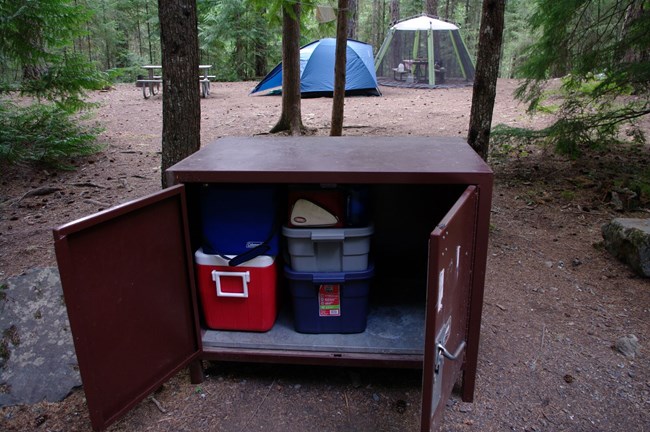
2. All trash goes in designated trash cans. (They’re ALL bear proof)
3. If you’re camping, don’t sleep in the clothes you ate in. Understandably so right? No further explanation needed. (After a long day of hiking, a lady was in the bathroom was expressing her disappointment that she’d forgotten to not eat in her pjamas and had just eaten smores and now had to change before holing up in her tent. Good idea.)
4. Don’t brush your teeth and spit in the woods. Guilty. I didn’t know that the first night until the camp host told us next morning. Bears are attracted to toothepaste, smelly lotions, perfumes, and soaps. So they don’t want you using any of that in the woods or in camp spigot. All that happens in the bear proof bathrooms.
5. Don’t wash dishes in the camp spigots. It’s tough. Some campgrounds don’t have a designated kitchen sink area. This was true of Jenny Lake in the Tetons. There we were instructed to fill jugs with water at the spigot, wash your dishes somehow, and then dispose of your dirty dish water in another jug. You can then bring that jug of dirty food and soap filled water to dump in the bathroom toilets. Again, just an effort to eliminate food particles and smells on the ground in campground areas.
6. It is recommended to always hike in groups of 3 or more. Solo hiking is discouraged. It is also highly recommendable to bring bear spray, and depending on where you’re hiking (like way out in the backcountry) to wear some kind of bell on your bag or body to alert bears before you cross paths and scare one into thinking he needs to react and defend itself.
Facts:
1. Bears only kill on average 1 person per year in National Parks. These deaths are usually faulted to the people, for breaking the bear safety rules.
2. Contrarily, there are 14 human caused bear deaths from National Parks every year. These are usually problem bears that have become too accustomed to people and campsites (due to food being left out). Once a bear has an incident with food, it is tagged and tracked. If it continues to invade human occupied areas, it is relocated, placed in a sanctuary, or killed. So if you care to save a bear, again, follow the bear safety rules!
3. Bears can smell things that are 18 miles away!!
4. One of the quickest ways to differentiate a black bears from a grizzly bear is by the hump in their shoulder/back, not the color of their coat. Most people assume grizzles are brown and black bears are black. They are in fact either color in either species and thus many grizzlies get accidentally killed by hunters who have permits to hunt black bears. Grizzlies have a hump in their shoulder/back. Black bears do not.
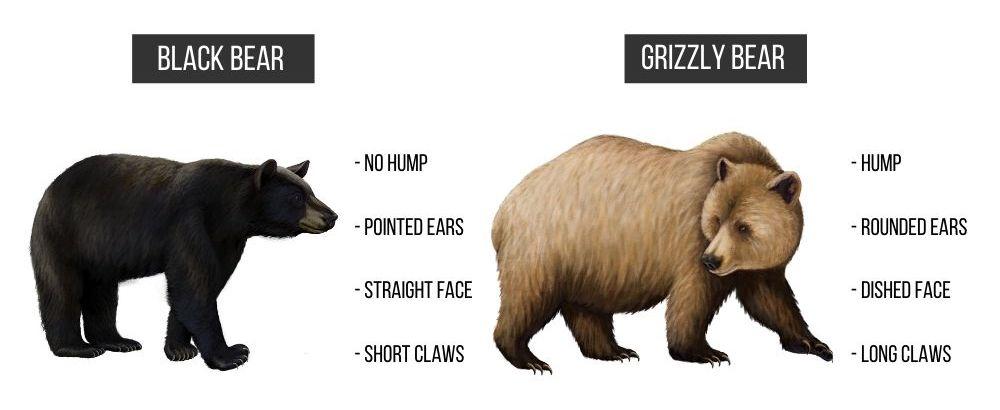
5. Since 1900, there have been 71 bear fatalities. Most are caused by Grizzly Bears, and usually have happened in the backcountry to hunters and fishermen. Here are some interesting statistics pictured below:
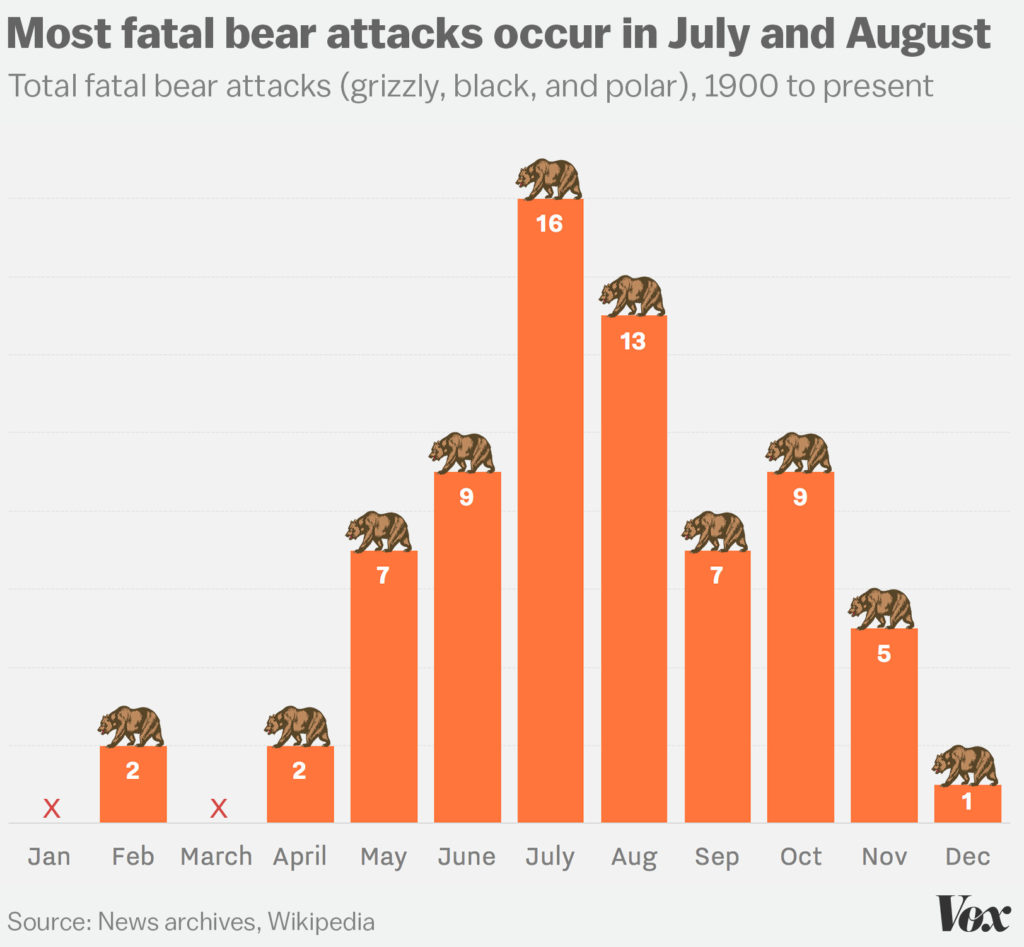
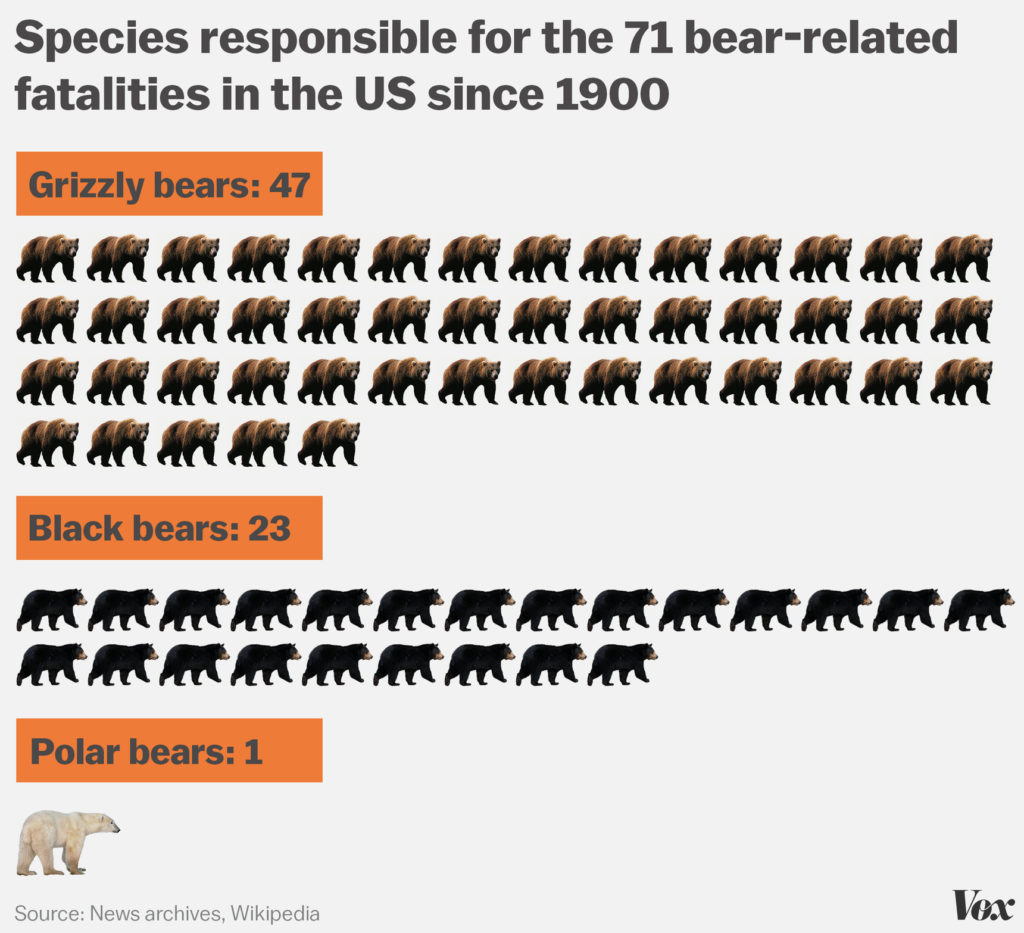
Paragraph
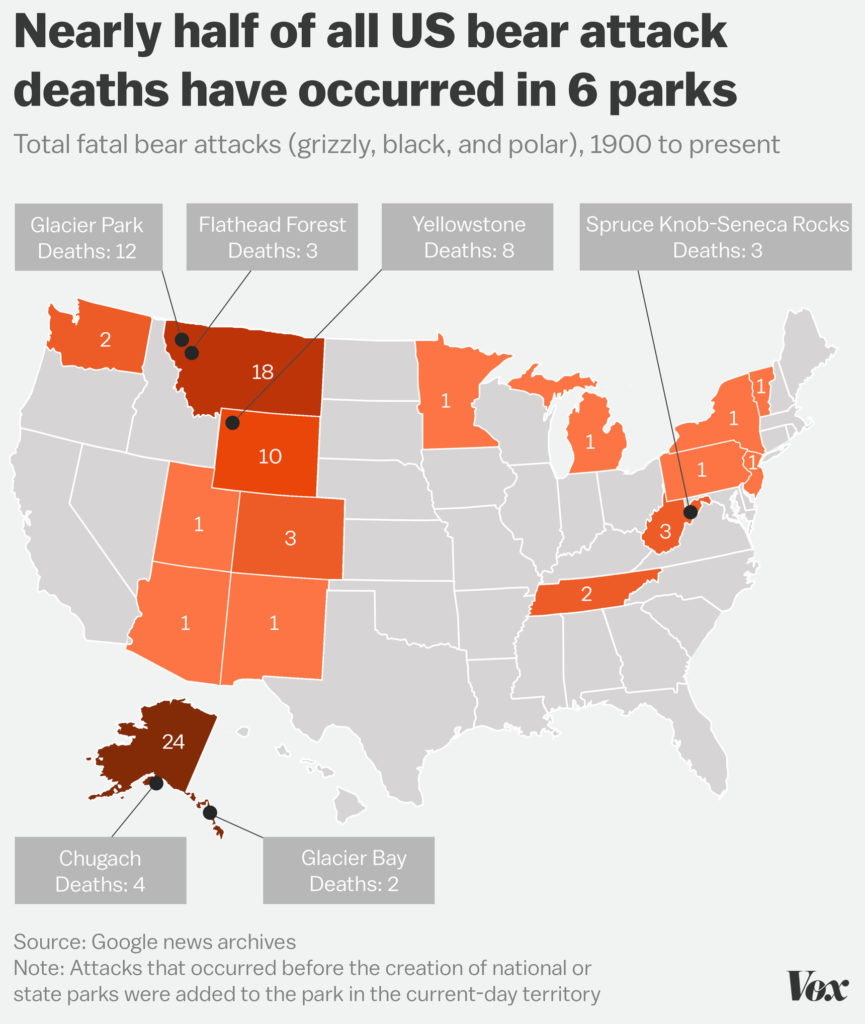
[…] everywhere about keeping your trash, and locking things up etc. I have a dedicated post about bears here. I came on the trip a little nervous about bears. My mom was VERY nervous about bears. But we […]
[…] set up camp in the middle of nowhere and have no bear box, place to store food etc. I’m doing a whole separate post with things I learned about bears on our […]